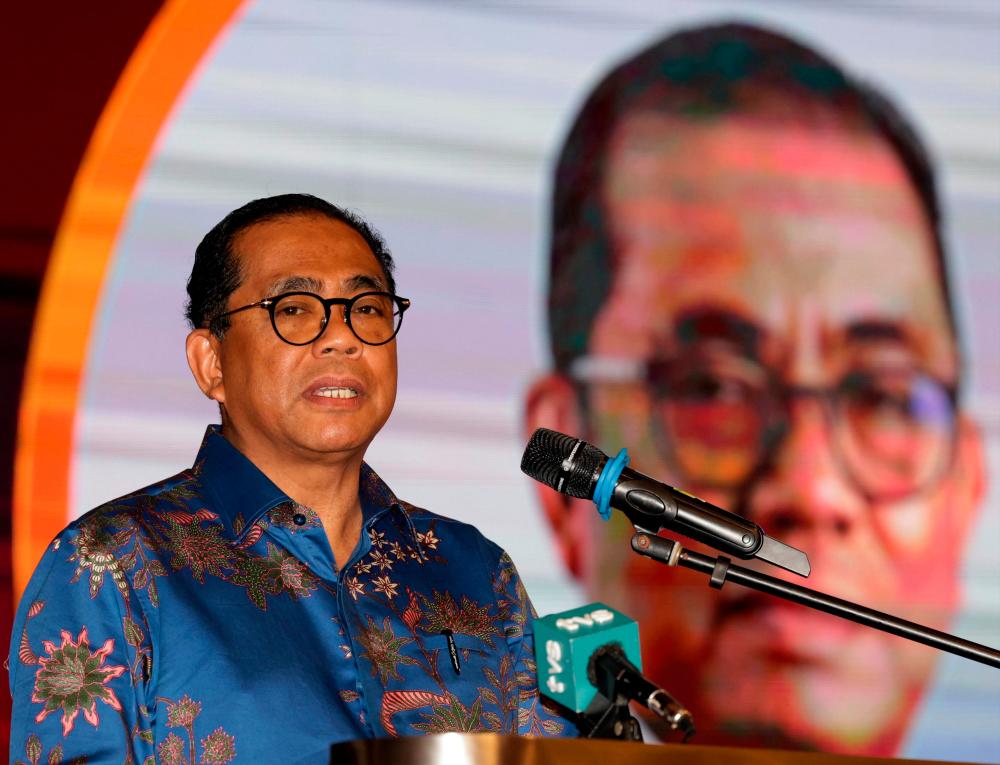SERI ISKANDAR: Adopting technology in education, particularly in higher education, is no longer a choice because it has become an imperative to maintain global competitiveness, according to Minister of Higher Education Datuk Seri Mohamed Khaled Nordin (pix).
He said this is in line with the Malaysia Higher Education Blueprint 2015-2025, which promotes globalised online learning to provide accessible education while tailoring learning experiences to each student’s needs.
In his speech at the International Conference On Advancing And Redesigning Education (ICARE’23) at Universiti Teknologi PETRONAS (UTP) here today, the minister said the theme of the two-day conference, “Reshaping Future Education through Digital Transformation”, also resonates deeply with the rapid shifts the country is witnessing in the global education sector.
“Technological advancements have catalysed a profound change in how we teach, learn and administer education.
“This conference serves as an ideal forum to explore and implement these strategies,” he said. The text of his speech was read out by the Chairman of the Alliance of Government-Linked Universities Prof Datuk Dr Mazliham Mohd Suud.
Mohamed Khaled said the Ministry of Higher Education (MOHE) has also proposed preparing a white paper to enable a powerful strategy in identifying, developing, adapting and integrating all advanced technological intelligence into the higher education sector.
“The white paper titled “A New Horizon for Science, Technology and Innovation – A Strategy for Malaysia” aims to specifically and deeply evaluate the effects and strategies in managing various current and future technological disruptions on teaching, learning and institutional governance under the MOHE.
“I believe this initiative will be invaluable in shaping the direction of our educational landscape,” he said.
Meanwhile, UTP vice-chancellor Prof Datuk Dr Mohamed Ibrahim Abdul Mutalib said UTP has always been cognisant of the changes not just in teaching and learning but also the volatility of the current workplace.
“Therefore, we ensure that our graduates are future-proof. We do this by ensuring that the curriculum fundamentals are strong. We challenge the students with different projects and also by the way we teach.
“It is no longer the chalk-and-talk approach to teaching for a long time, even before the pandemic, and through our Centre for Excellence in Teaching and Learning (CETaL) we look at what’s the best way for a student to learn. We train our lecturers to recognise that students learn differently. CETaL is a testament to UTP’s commitment to the transforming and innovating of teaching and learning,” he added.
ICARE’23 is organised by the Alliance of Government-Linked Universities, which comprises Multimedia University (MMU), Universiti Kuala Lumpur (UniKL), Universiti Tenaga Nasional (UNITEN) and UTP as the host.
Co-organised by the Malaysian e-Learning Council for Public Universities (MEIPTA), the two-day conference, which began today, also targeted to establish collaboration opportunities with an emphasis on relationship building between the academic and the industry.
It also aimed to strengthen the research culture among educators, specifically in the teaching and learning areas, which was further divided into four main tracks, namely Technology-Enhanced Learning, Innovative Curriculum & Programme Offering, Learning Beyond Classroom, and Digital Campus.
ICARE’23 has attracted about 150 participants from academics, researchers, graduates and industry members, coming together to exchange knowledge and expertise in the latest developments and research findings in teaching and learning. -Bernama









